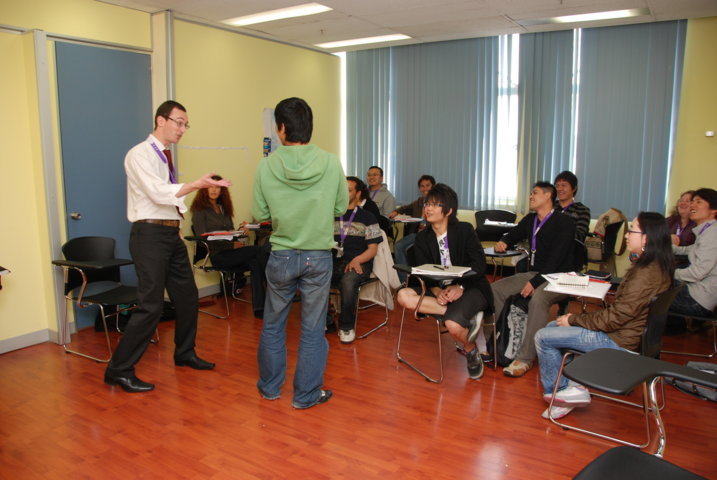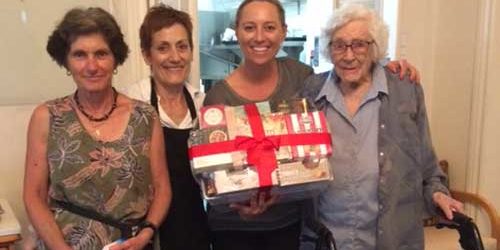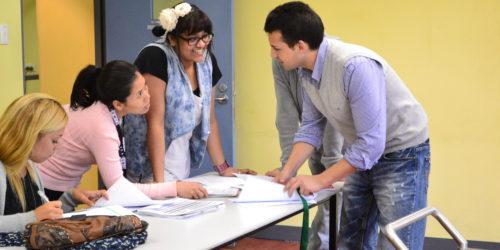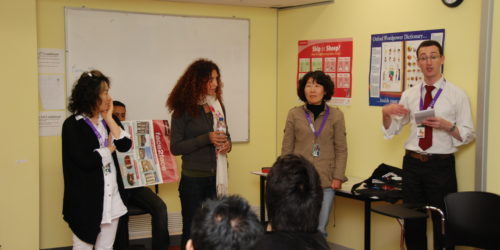How our aged care courses prepare you for managing dementia
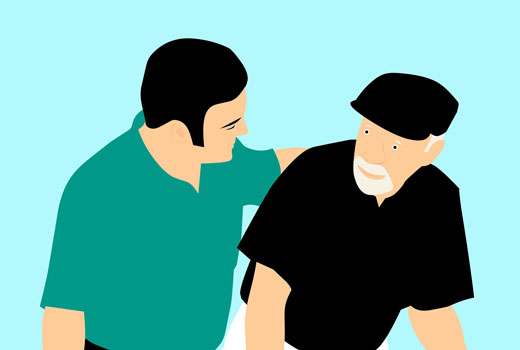
Aged care workers are more than just caretakers – they’re trained professionals, responsible for a wide variety of different responsibilities and duties (that often require specialist knowledge alongside immeasurable patience and compassion).
One of the best examples is caring for and providing support to people living with dementia.
Anyone who’s ever had relatives with dementia knows that caring for them can be extremely difficult, and can lead to ridiculous amounts of stress.
And as part of our holistic approach towards training, each of the aged care courses we offer includes units covering dementia care, preparing you for every possibility and turning you into the strongest candidate for the job!
What makes caring for dementia so difficult?
Unlike many of the other ailments you’ll face, dementia isn’t a physical condition, but a range of neurodegenerative syndromes that result in mental deterioration.
While the root cause can vary (with Alzheimer’s disease making up the majority of cases), most cases of dementia result in brain tissue progressively shrinking and decaying, with brain cells and neural connections being lost.
And that in turn affects a range of important brain functions – while most people are familiar with the loss of memory, dementia can also affect:
- Judgement
- Emotional state
- Personality
- Social skills
- Cognitive function
- In advanced cases, dementia can cause a loss of physical abilities as well
In addition to the impact it has on the affected individual, dementia can also impact the family as well as carers.
The change in personality (often in the form of increased aggression), loss of impulse control and impaired social and cognitive skills can all combine to create cases that can be difficult to deal with.
While some symptoms can be managed and the deterioration slowed down or even halted in some cases, this condition can’t be cured – all you can do is manage it and stop them from harming themselves or others.
And that requires aged care workers with special training, as well as different techniques.
Caring for people with dementia
As part of our aged care courses in Melbourne, you’ll learn all about dementia and how it works – more importantly, you’ll also learn about different techniques you can use to care for people with dementia.
Medication
While dementia is irreversible, some of the symptoms may be reduced or managed with medication.
For example, in cases of dementia caused by Alzheimer’s disease, drugs such as memantine and chollergic treatments can help by improving the brain’s ability to carry messages and information.
In earlier stages of dementia, these medications can help stabilise symptoms, regulate the production of brain chemicals and reduce the impact this condition can have on memory, judgement and other mental functions.
Brain exercise
Your brain operates on a “use it or lose it” principle – just like how your muscles can get soft if you don’t exercise, your cognitive functions can suffer if you aren’t “exercising” your brain.
Things like crosswords, puzzles or picking up a new language are great at fighting off cognitive decline – and while they can’t stop dementia, in some cases, mentally stimulating activities can reduce symptoms and slow down progression.
As part of your online aged care course, you’ll learn about different activities as well as the effect they can have on dementia symptoms.
Music therapy
While memories of events may be lost, in many cases, other types of memory persist – muscle memory is a good example.
Another one is music.
Music therapy can be an effective way of calming a person with dementia, as well as forming a connection with them and unlocking memories or feelings of the past.
Of course, it requires knowledge of a person’s musical taste and favourite songs – it might be worth consulting with the family to maximise the chances of success.
Validation therapy
One of the most difficult parts of dealing with a person with dementia is often how volatile they can be.
In many cases, people with dementia lash out, often as a result of the personality shift and increased aggression that come with dementia. Other times, the memory loss causes people with dementia to forget where they are, and they react negatively out of fear.
Validation therapy suggests that instead of trying to bring them back to reality, a better way of dealing with people with dementia is to enter their “reality” and play along with them.
The idea is that by doing so, it calms the individual and makes them less likely to act out, thereby reducing conflict while also respecting their dignity and making them more likely to cooperate.
Reminiscence
In earlier stages of dementia, people often retain more firmly established, long-term memories. Accessing these memories and reminiscing can be an effective way of caring for someone with dementia and helping soothe them.
Aged care workers can even take this further by compiling albums and visual diaries including letters, postcards and photos.
The scrapbook method provides a starting point for reminiscence therapy, and can help ground someone who’s struggling with where they are.
Our aged care courses in Melbourne prepare you for all eventualities, including caring for people with dementia
Almost half a million Australians live with dementia – a number that’s predicted to grow as the population ages.
In short, there’s good odds you’ll encounter this condition at some point during your career.
To prepare you for this, our aged care courses in Melbourne feature caring for people with dementia as a core unit.
Our online aged care courses offer an alternative to on-campus learning, without sacrificing the classroom experience. We’re committed to continuing to hold classes in real-time, while also maintaining favourable student-instructor ratios.
Certificate III in Individual Support
This course’s purpose is simple: to create the next generation of aged care workers, ready to tackle all of the challenges involved in aged care and help the industry prepare for the future.
And part of that means ensuring that students leave with an understanding of dementia, as well as techniques that they can use to take care of people with dementia.
On top of all the essential skills you’ll need in aged care, this course also includes comprehensive training in dementia care.
Learn more about the Certificate III in Individual Support.
Certificate IV in Ageing Support
If you want to take your career to the next level, this Certificate IV is just what you need.
Building upon the foundational skills covered under a Certificate III in Individual Support, this course also covers planning and other managerial responsibilities – knowledge that you can take and use to create dementia management plans at your aged care facility.
Learn more about the Certificate IV in Ageing Support.
Study aged care in Melbourne with Academia
Our purpose is simple: to create the next generation of qualified and capable aged care workers, ready to tackle all of the challenges involved in aged care and help the industry prepare for the future.
We believe that the key to effective training is:
- A focus on practical training, with in-depth workshop classes and a placements in real-world organisations and businesses
- A holistic approach towards learning that covers all of the bases and which ensures you leave with a wealth of knowledge and skills
We take this way of thinking into all of the courses we offer – and that includes our aged care courses in Melbourne.
Our aged care courses feature a wide variety of different units, all of which are chosen to turn you into a well-rounded aged care worker, ready to enter the industry.
If you want to study aged care in Melbourne, give our campus a call on (03) 9671 4755, or click here to learn more.

